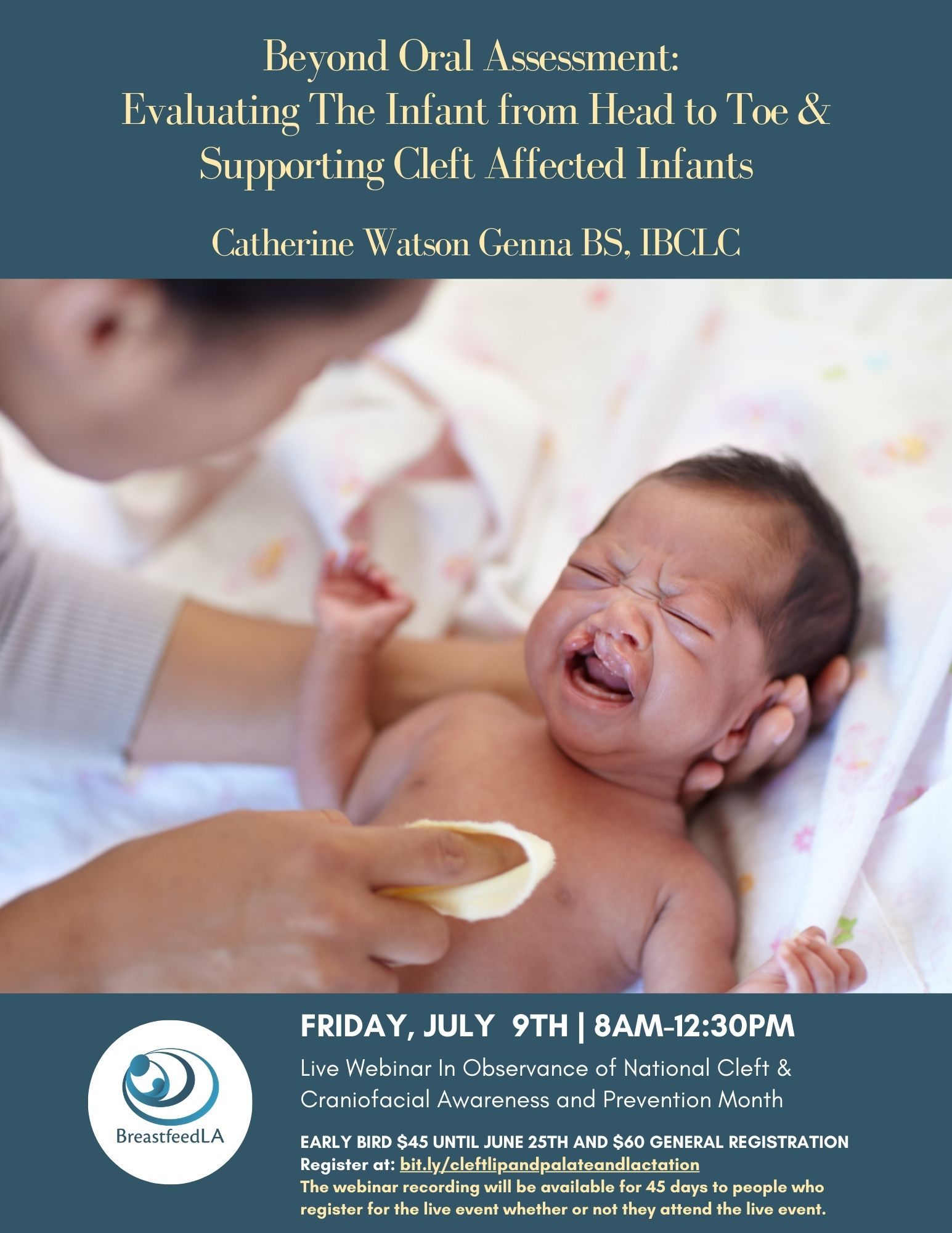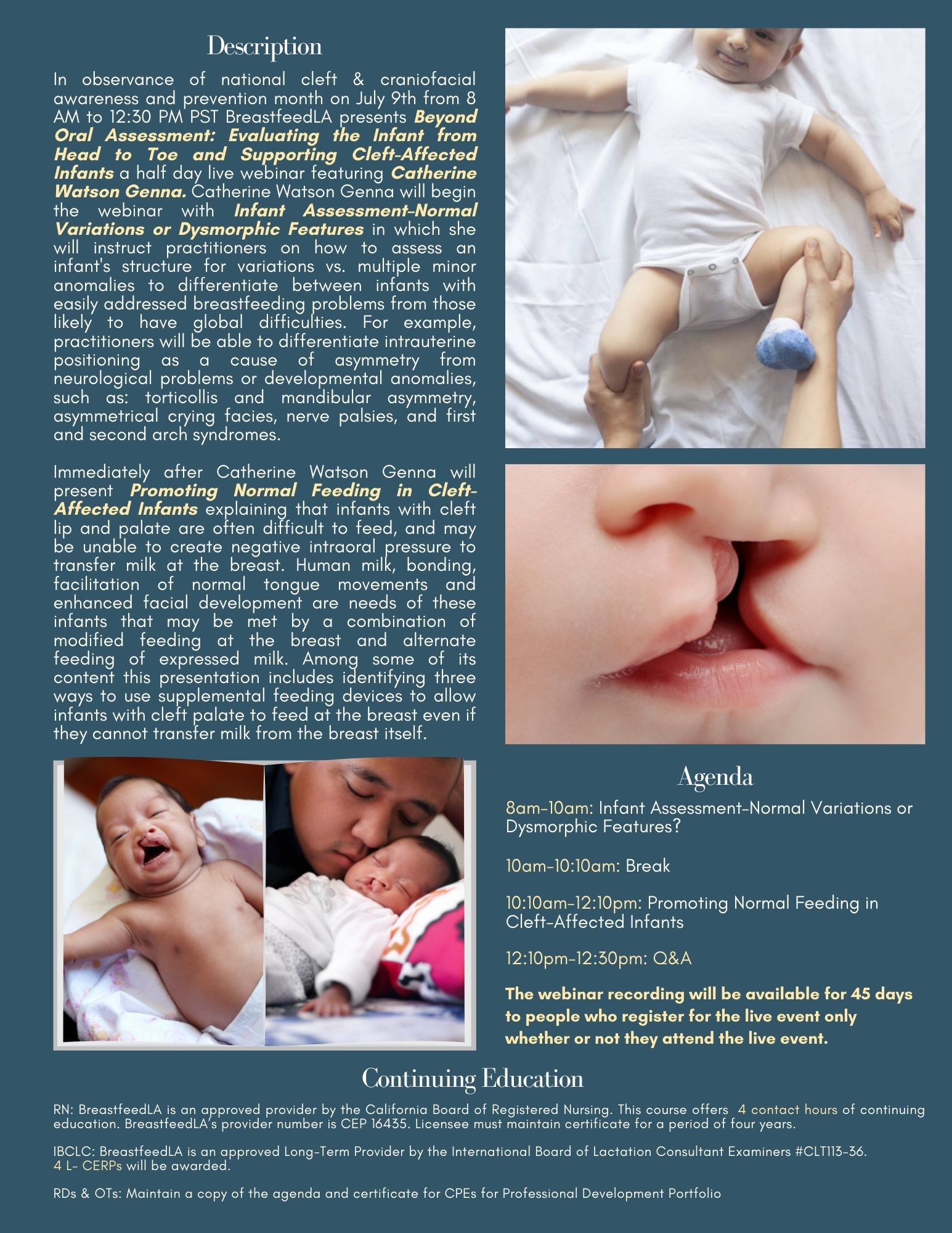Beyond Oral Assessment:
Evaluating The Infant from Head to Toe & Supporting Cleft Affected Infants
Catherine Watson Genna BS, IBCLC
$45 – Early Bird Price Ends On June 25th
$60 – General Registration On & After June 26th
Register Today | Download Flyer
Attendees will be awarded 4 L-CERPs and 4 Contact Hours

In observance of national cleft & craniofacial awareness and prevention month on July 9th from 8 AM to 12:30 PM PST BreastfeedLA presents Beyond Oral Assessment: Evaluating the Infant from Head to Toe and Supporting Cleft-Affected Infants a half day live webinar featuring Catherine Watson Genna. Catherine Watson Genna will begin the webinar with Infant Assessment–Normal Variations or Dysmorphic Features in which she will instruct practitioners on how to assess an infant’s structure for variations vs. multiple minor anomalies to differentiate between infants with easily addressed breastfeeding problems from those likely to have global difficulties. For example, practitioners will be able to differentiate intrauterine positioning as a cause of asymmetry from neurological problems or developmental anomalies, such as: torticollis and mandibular asymmetry, asymmetrical crying facies, nerve palsies, and first and second arch syndromes. Immediately after Catherine Watson Genna will present Promoting Normal Feeding in Cleft Affected Infants explaining that infants with cleft lip and palate are often difficult to feed, and may be unable to create negative intraoral pressure to transfer milk at the breast. Human milk, bonding, facilitation of normal tongue movements and enhanced facial development are needs of these infants that may be met by a combination of modified feeding at the breast and alternate feeding of expressed milk. Among some of its content this presentation includes identifying three ways to use supplemental feeding devices to allow infants with cleft palate to feed at the breast even if they cannot transfer milk from the breast itself.


